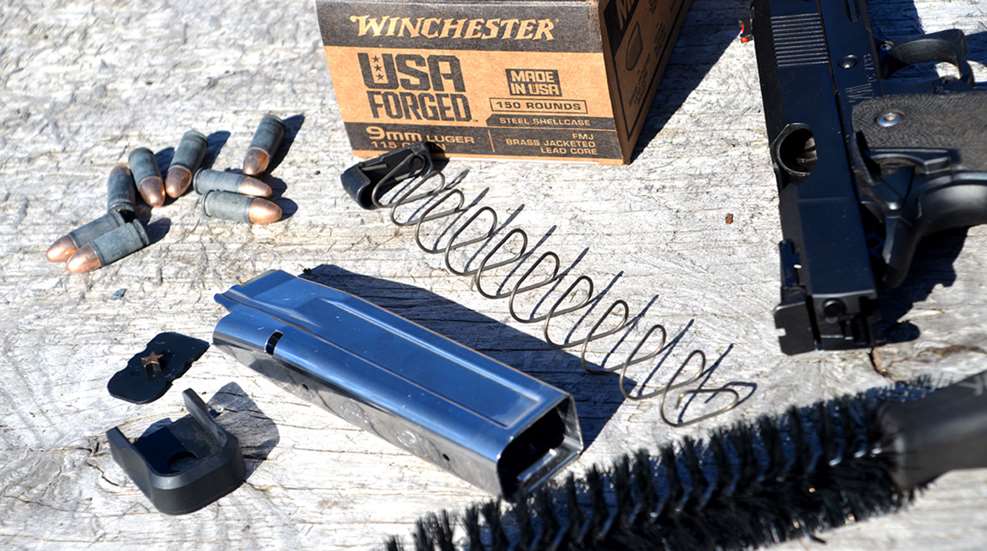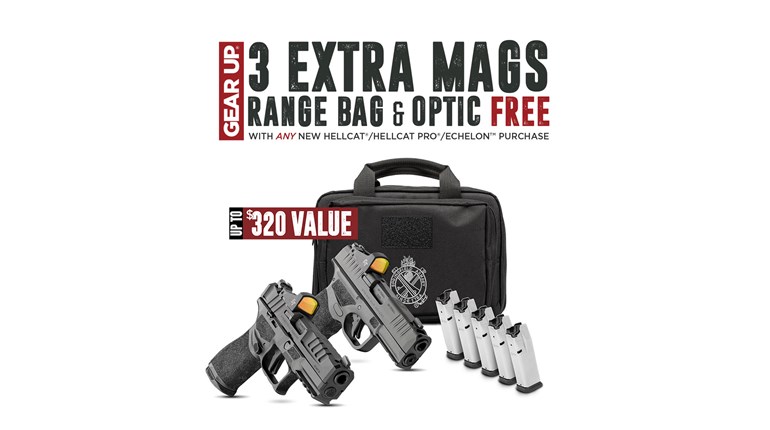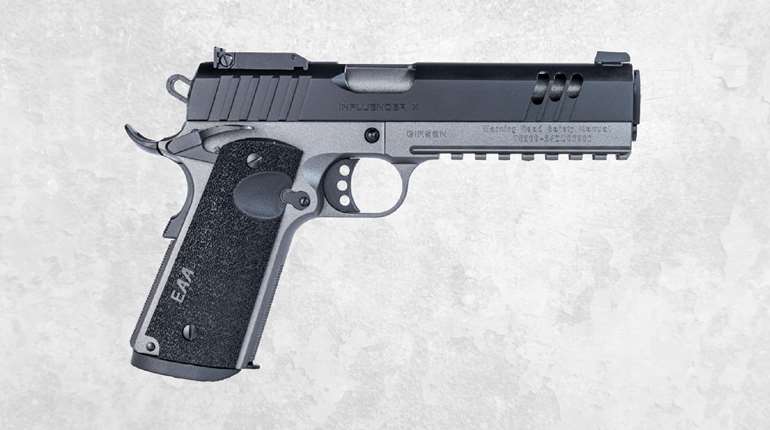
We all know that a clean gun is a happy gun, but what about the magazine? Magazines may be constructed of steel or polymer, but they all have one thing in common: They get dirty and worn, and that can hurt your gun’s ability to feed ammunition properly. A failure to feed is absolutely the last thing you want to happen in a critical self-defense situation. Today, we’re covering four simple steps courtesy of NRA Women columnist Becky Yackley to keep your magazine spandy-clean ... and yourself safe.
Step One: Make a Cleaning Schedule
Yackley is a competitive shooter for Winchester, so her cleaning schedule is likely to be a bit more intense than most of ours. However, it’s a good idea to just add magazine cleaning to your end-of-shooting ritual at regular intervals. Yackley chooses to clean her mags every time she has to drop one—and that may be a good schedule for the rest of us, too. As she points out, “Some ranges have very unique dust that coats gear to the point where it almost becomes sticky.” The key is that you stick to whatever schedule works best for you.
Step Two: Break Down the Magazine
Now that you have your dirty magazines arrayed before you, it’s time to break them down. Most magazines have a removable baseplate at the bottom; you can unlock it by inserting an Allen wrench (or even the end of a pen, in a pinch) into the little hole in the baseplate. Once that’s out, be sure to release the spring gently so it won’t go flying across the room—and we promise it will try—and then collect the components.
Step Three: Easy Clean
This part of the process is the fastest and simplest. Yackley recommends using a magazine brush, which is a purpose-built tool, but you can also use a toothbrush if you like. (Just don’t mix it up with your toiletries kit…) Follow up with a soft cloth rag to get any fine dust left behind. “If the dust, sweat and humidity are bad,” she continues, “I will wipe them off with an alcohol wipe, too.” Yackley emphasizes that you must not use oil on our magazines and parts, because all that does is attract more dust.
Step Four: Inspect
This may well be the most important part of the process, because no matter how often we clean our magazines, sooner or later they will wear out. Like a car’s tires, magazines are perishable. There are a couple of different wear points that you’ll want to examine, and what those points are depends on whether your magazine is polymer or steel.
Says Yackley, “If you shoot a gun with polymer magazines, one area to pay attention to is the magazine release slot. For example, on a Glock mag, the edges of this cut can wear over time, and can cause a mag to stick. For metal pistol mags the main concerns are areas where the magazine might wear or take damage. The mag release slot and the feed lips of the mag are the two big ones. If I shoot over concrete and drop mags, this can sometimes cause issues.”
Whether your primary interest in shooting is self-defense, hunting or competitive shooting, don’t forget about your magazines. They’re the smallest, most inexpensive way to keep your gun running like a top ... or not.















































